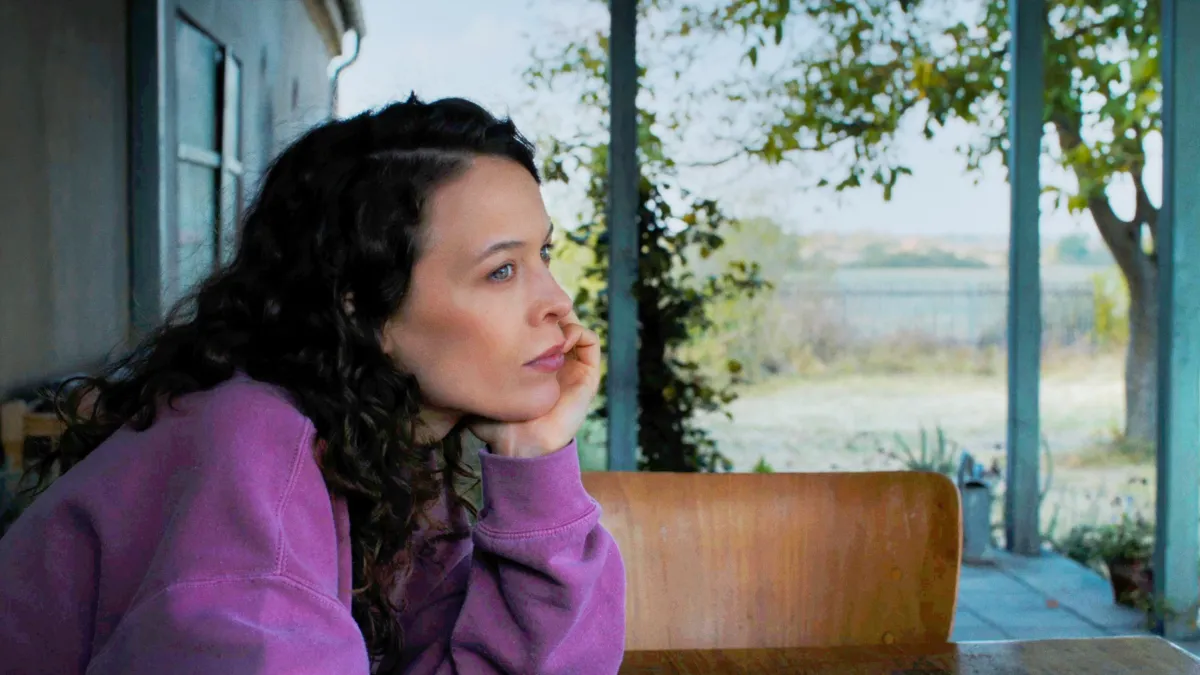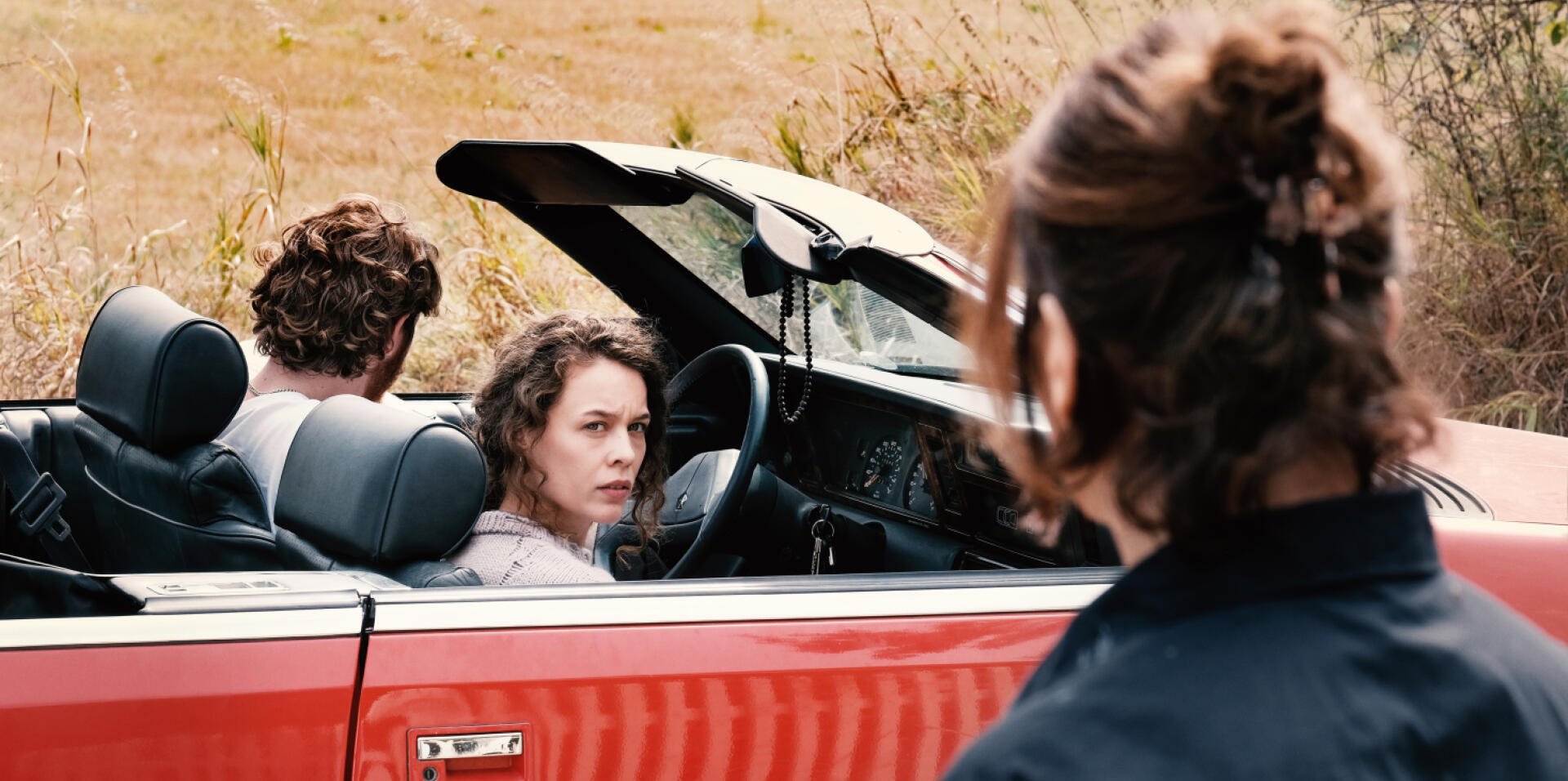Director: Christian Petzold
Writer: Christian Petzold
Stars: Paula Beer, Barbara Auer, Matthias Brandt
Synopsis: A young music student’s life takes an unexpected turn when her boyfriend tragically dies in a car crash, forcing her to reshape her path forward.
One of the most magnificent duos in modern cinema is the collaboration between German filmmaker Christian Petzold and his current muse, Paula Beer. After making many films with another, equally talented, German actress, Nina Hoss, Petzold landed with Beer as one of the leads in his 2018 feature, Transit. Ever since, both have evolved for the better in their respective crafts—Petzold as a director, Beer as an actress–becoming top-tier acts in the European scene, although some part of me still feels they are undervalued in their fields. The two are elegant, with significant poise and control in their work.
Petzold grows into a filmmaker who does more with less, depending on the tactility in the emotional underpinnings of his narrative rather than style and innovation. Meanwhile, Beer has emphasized finding the truths in her characters, which leads to honest, authentic performances that connect easily with the audience. Their latest (and fourth) collaboration, Mirrors No. 3 (Miroirs No. 3, screening at the 2025 Cannes Film Festival in the Quinzaine des cinéastes), is the smallest regarding production (and runtime, running under ninety minutes). Still, it may be their best, and most touching, one yet. If the only issue it has is that you wish you’d spent more time with the characters, that says the whole story.
Petzold and Beer deliver an honest, intimate portrait of strangers and the pain they carry, centering around a young piano student from Berlin named Laura (Beer), played by the talented German actress. Named after Ravel’s piece of the same name, Mirrors No. 3 follows Laura, who is changing her heart during a road trip with her boyfriend Jakob. They are going to the pier to meet with a producer willing to work with Jakob for his upcoming record. He needs Laura to be there for the whole weekend, but she wants out–enraging Jakob vastly, enough to drive her back to the station, leaving her alone during the next couple of days. But they don’t make it there; a car accident occurs and kills the impatient boyfriend, with Laura surviving, yet being shaken to the core.
The accident is not shown, only a moment before and after, so details are missing from this introduction. Petzold’s ambiguous nature remains high, and we are meant to slowly decipher the many secrets and metaphors he presents us during the film’s development. The only person who can be considered a witness to this tragedy is a middle-aged woman named Betty (Barbara Auer). She invites Laura to her humble farmhouse nearby after leaving the wreckage. After a while, Laura asks her to stay indefinitely, and Betty is happy to do so, yet surprised at the request. From here, a mother-daughter relationship arises, even though they are strangers.
Their quick bonding becomes similar to that of a parent and their child, with the white picket fence Betty was painting the first time we see her being part of the family picture Petzold is constructing. While Laura remains a mysterious figure that is hard to read, like most of her characters during the beginning of the narrative, Betty is much clearer. By mere accident, she calls Laura by a different name, Yelena, revealing the root of the pain she holds from the loss she can’t move past. It is a moment of clarity in a still and unsettled canvas, framed by Petzold’s usual cinematographer, Hans Fromm.
That moment, along with one where Betty requests Laura to play a Chopin piece, helps provide the audience with a path towards understanding the character of Betty while forging the next steps for Laura after these events. A sympathy built on anxiousness, secrecy, and grief is built, and the audience begins to see how these characters deal with their respective griefs. These are strange ways to deal with the loss of a loved one. But who are we to judge? We all have had different ways of expelling our sorrows, which are difficult to explain yet help us move forward.
Other members later join this reflective journey, including Betty’s husband, Richard (Matthias Brandt), and son, Max (Enno Trebs), who live in the car-repair shop they manage nearby. Like in Afire, the appearance of Beer’s character begins to stir the household, with some members being warm towards her, while others feel like she is a burden, questioning her relationship with Betty. But sooner rather than later, she becomes the key to solving their sorrows. And later on, the roles are reversed for Laura’s pains and woes. The four form a unit that begins with distance and ends with a level of compassion. Not only is Betty suffering the loss of the named Yelena, but Richard and Max as well, in a different manner that is more internal rather than outwardly expressive.
That is how Petzold works. He puts more emphasis on the effects that an incident has rather than the moment of impact itself. Everything that has caused the characters to be this way, apart from the image of Laura in the wreckage, is alluded to. And even by removing the aforementioned image, Mirrors No. 3 would retain its tact and eloquence, although with more ambiguity and mystery to the stranger–mirroring Petzold’s recurrent interest in how the presence of a bystander can subtly alter the emotional trajectories of those around them, implemented by Pier Paolo Pasolini in his 1968 masterpiece Theorem, albeit without the provocation or existentialist crisis. We don’t know Laura as a whole; it is only the version that Betty reconfigures to fit the image of her loved one.
With an aptitude for emotional opacity and inner turmoil, Beer offers a haunting and touching performance, with her smiles and looks indecipherable, adding layers to the enigmatic narrative. We grieve and worry alongside her; she is a mirror into herself, but one that takes time to show its reflection to the audience. The film is ghostly, not in the manner of frights or scares, but in how memory can quietly distort our perception or save us from sinking into our woes. Mirrors No. 3 is elliptical as Petzold moves his minor-key symphony of human connection into profoundly moving territories. Its fleeing nature creates echoes that linger as you deconstruct each character’s mask to reveal what they are hiding–a work of quiet devastation and unexpected grace.







